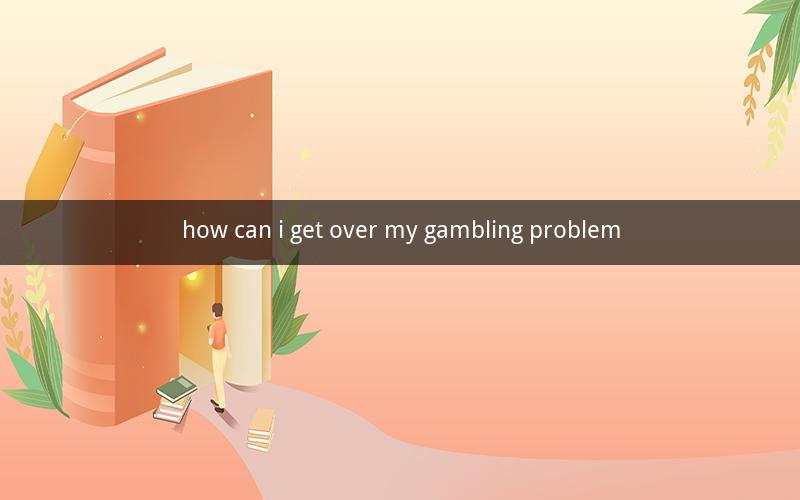
How Can I Get Over My Gambling Problem?
Table of Contents
1. Understanding the Problem
2. The Impact of Gambling on Your Life
3. Seeking Professional Help
4. Building a Support System
5. Financial Management
6. Alternative Activities
7. Cognitive Behavioral Therapy
8. Setting Clear Goals
9. Learning from the Past
10. Staying Accountable
1. Understanding the Problem
Gambling can be an enjoyable pastime for many, but for some, it can develop into a problematic addiction. To get over your gambling problem, it is crucial to first understand the nature of the addiction and its effects on your life.
2. The Impact of Gambling on Your Life
Gambling addiction can have profound effects on various aspects of your life, including:
- Financial Stability: Excessive gambling can lead to significant debt and financial turmoil.
- Relationships: It can strain personal and professional relationships, causing trust issues and emotional distress.
- Mental Health: The stress and anxiety associated with gambling can contribute to mental health issues such as depression and anxiety.
- Physical Health: Sleep deprivation and neglect of personal care can lead to physical health problems.
3. Seeking Professional Help
A crucial step in overcoming your gambling problem is to seek professional help. Therapists, counselors, and addiction specialists can provide guidance and support tailored to your specific needs.
4. Building a Support System
Surrounding yourself with a supportive network of friends, family, and colleagues can significantly aid in your recovery process. Share your struggles with trusted individuals who can offer empathy and encouragement.
5. Financial Management
Take control of your finances by creating a budget, paying off debts, and avoiding gambling altogether. Consider seeking assistance from a financial advisor or credit counselor to help you manage your finances effectively.
6. Alternative Activities
Find alternative activities to fill the void left by gambling. Engaging in hobbies, exercising, and participating in social events can provide a healthy outlet for your time and energy.
7. Cognitive Behavioral Therapy (CBT)
CBT is a type of therapy that can help you understand the thoughts and behaviors that contribute to your gambling addiction. This therapy can help you develop coping strategies and change negative thought patterns.
8. Setting Clear Goals
Set specific, measurable, achievable, relevant, and time-bound (SMART) goals to help you track your progress. These goals may include reducing the amount of money you spend on gambling or attending support group meetings regularly.
9. Learning from the Past
Reflect on your past experiences with gambling and learn from them. Acknowledge your mistakes and use them as a basis for growth and change.
10. Staying Accountable
Accountability is key to maintaining your recovery. Share your goals and progress with someone you trust, and consider using apps or devices that can help you monitor your gambling habits.
Additional Resources
- Gamblers Anonymous: A fellowship of men and women who share their experience, strength, and hope with each other that they may solve their common problems and help others to do the same.
- National Council on Problem Gambling: Offers resources, support, and information for individuals struggling with gambling addiction.
- Financial Counseling Services: Provides assistance with budgeting, debt management, and financial planning.
Questions and Answers
1. Q: What are the signs of a gambling addiction?
A: Signs include a preoccupation with gambling, lying about gambling activities, using gambling as a way to escape problems, and a failure to stop despite negative consequences.
2. Q: Can I overcome a gambling addiction on my own?
A: While it is possible to make progress on your own, seeking professional help and joining support groups can significantly enhance your chances of recovery.
3. Q: How long does it take to overcome a gambling addiction?
A: The duration of recovery can vary widely from person to person, but many individuals experience significant improvement within a few months to a year.
4. Q: Can medication help with gambling addiction?
A: While there are no medications specifically designed to treat gambling addiction, certain medications may be prescribed to help manage co-occurring mental health disorders.
5. Q: What should I do if I suspect a loved one has a gambling problem?
A: Express your concerns in a non-confrontational manner, offer support, and encourage them to seek professional help.
6. Q: Are there support groups for family members of gamblers?
A: Yes, there are support groups such as Gam-Anon that provide support and resources for family members and friends of individuals with gambling problems.
7. Q: Can I still enjoy gambling if I have a problem?
A: If you have a gambling problem, it is essential to stop gambling entirely. Even small amounts of gambling can trigger a relapse.
8. Q: What is the most effective treatment for gambling addiction?
A: The most effective treatment often combines therapy, support groups, and lifestyle changes. The best approach can vary depending on individual needs.
9. Q: Can a gambling addiction lead to legal issues?
A: Yes, a gambling addiction can lead to legal issues, such as embezzlement, fraud, or theft, as individuals may turn to illegal means to support their habit.
10. Q: Is it normal to feel guilty or ashamed about my gambling addiction?
A: Yes, it is common to feel guilty or ashamed about a gambling addiction. It is important to seek help and understand that recovery is possible.